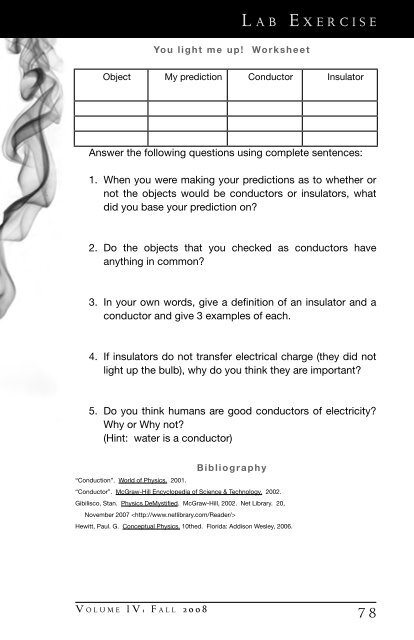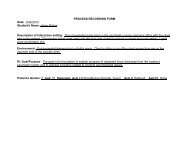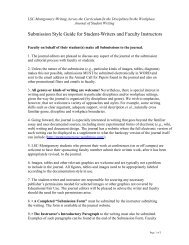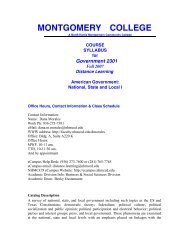2008 - Communication Across the Curriculum (CAC)
2008 - Communication Across the Curriculum (CAC)
2008 - Communication Across the Curriculum (CAC)
You also want an ePaper? Increase the reach of your titles
YUMPU automatically turns print PDFs into web optimized ePapers that Google loves.
L a b E x e r c i s e<br />
You light me up! Worksheet<br />
Object My prediction Conductor Insulator<br />
Answer <strong>the</strong> following questions using complete sentences:<br />
1. When you were making your predictions as to whe<strong>the</strong>r or<br />
not <strong>the</strong> objects would be conductors or insulators, what<br />
did you base your prediction on<br />
2. Do <strong>the</strong> objects that you checked as conductors have<br />
anything in common<br />
3. In your own words, give a definition of an insulator and a<br />
conductor and give 3 examples of each.<br />
4. If insulators do not transfer electrical charge (<strong>the</strong>y did not<br />
light up <strong>the</strong> bulb), why do you think <strong>the</strong>y are important<br />
5. Do you think humans are good conductors of electricity<br />
Why or Why not<br />
(Hint: water is a conductor)<br />
Bibliography<br />
“Conduction”. World of Physics. 2001.<br />
“Conductor”. McGraw-Hill Encyclopedia of Science & Technology. 2002.<br />
Gibilisco, Stan. Physics DeMystified. McGraw-Hill, 2002. Net Library. 20,<br />
November 2007 <br />
Hewitt, Paul. G. Conceptual Physics. 10<strong>the</strong>d. Florida: Addison Wesley, 2006.<br />
V o l u m e I V : F a l l 2 0 0 8<br />
7 8






